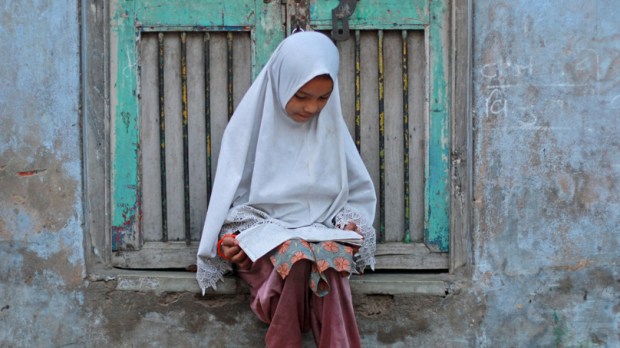Lenten Campaign 2025
This content is free of charge, as are all our articles.
Support us with a donation that is tax-deductible and enable us to continue to reach millions of readers.
With 800 million people in the world who are illiterate, poverty could be reduced by 12% if 170 million more people learned how to read.
That is a United Nations estimate that Maryanne Wolf is fond of citing. Wolf, who cofounded a global initiative to reduce illiteracy, was appointed to the Pontifical Academy of Sciences Monday.
The American literacy expert, who teaches at UCLA, is the second woman Pope Francis named to the Vatican academy in as many weeks. On September 29, the pope appointed Fabiola Gianotti, who played a role in the discovery of the “God Particle,” to the body of experts.
Wolf is the director of the Center for Dyslexia, Diverse Learners, and Social Justice at UCLA. She is the author of Proust and the Squid: The Story and Science of the Reading Brain and Reader, Come Home: The Reading Brain in a Digital World.
Born in 1947 in South Bend, Indiana, she graduated from St. Mary’s College/Notre Dame and received her doctorate from Harvard’s Human Development and Psychology department. There, she began her work in cognitive neuroscience and psycholinguistics on the reading brain, language, and dyslexia.
She designed the RAVE-O reading intervention for children with dyslexia, and with Martha Denckla, co-authored the RAN/RAS naming speed tests, a major predictor of dyslexia across all languages. She also co-founded Curious Learning, a global literacy initiative with deployments in Africa, India, Australia, and rural United States and the Einstein Award from The Dyslexia Foundation for her work in dyslexia.
Wolf is currently working with members of the Dyslexia Center in the UCSF School of Medicine and the faculty at Chapman University on issues related to dyslexia.
Ampersand, the UCLA Graduate School of Education and Information Studies online magazine, said that the Vatican appointment recognized Wolf’s work “in applying science to education, in tandem with Pope Francis’ expressed goal of utilizing science to improve the lives of the world’s impoverished populations, particularly children.”
Even before being named at the Pontifical Academy of Sciences, Wolf had addressed the body on literacy-related issues.

